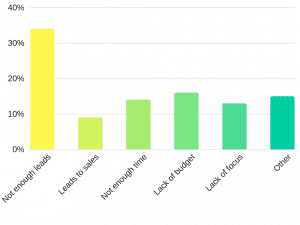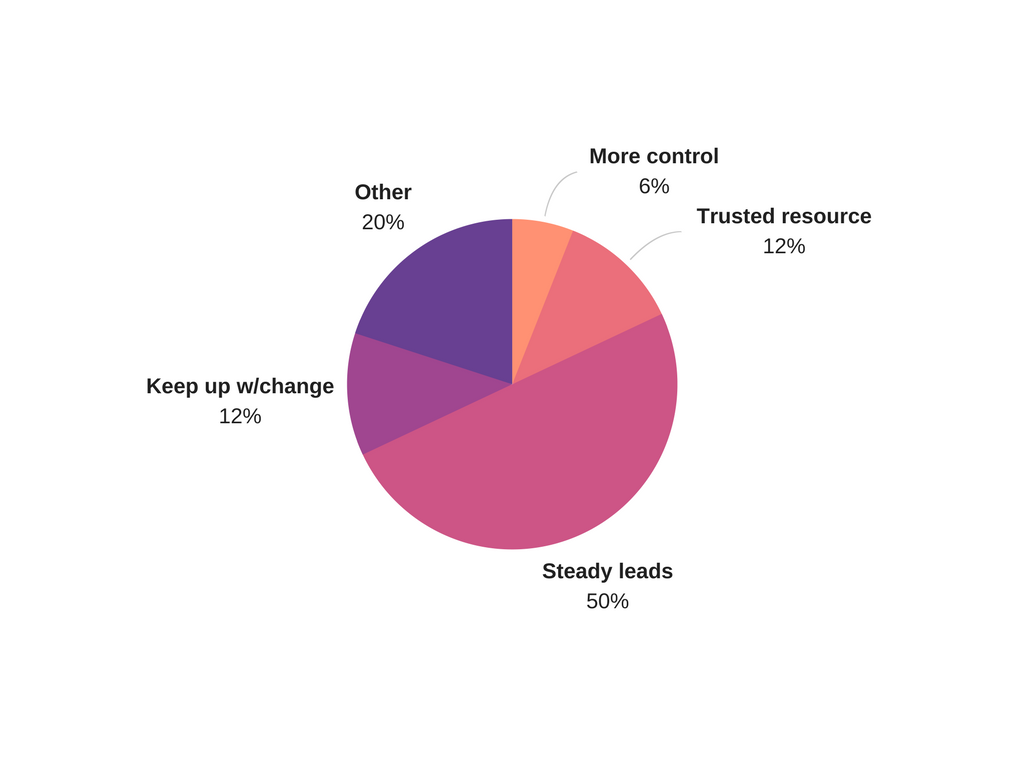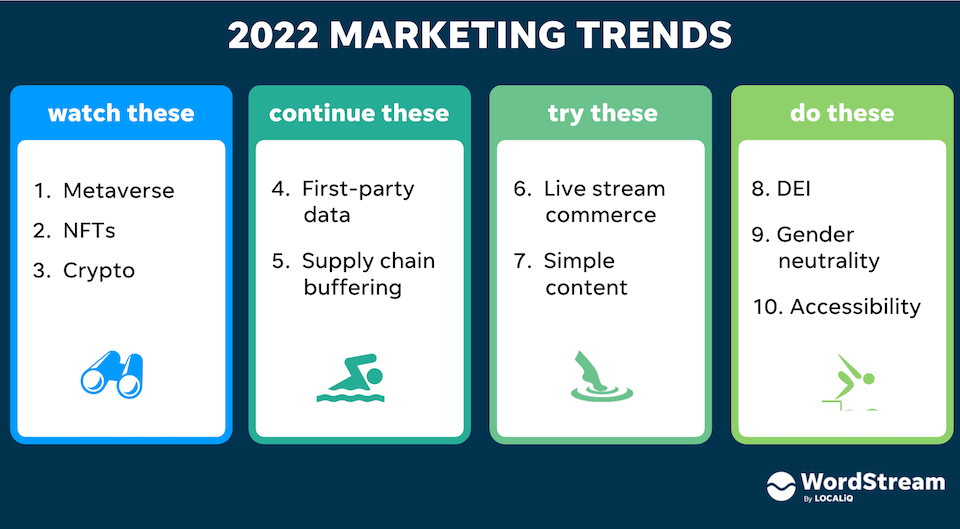
Marketing and branding is not a tagline or logo
January 29, 2020
8 Telltale Signs It’s Time to Hire a Marketing Agency
October 21, 2020
By John Jantsch
I’ve written about marketing for small business for years and spend enough time with business owners that some might consider me an expert on the topic. In order to ensure I stay on top of trends and provide you with the most current information and tips, I continue to conduct my own research and get as much current data as possible to provide for you. I recently reached out to my friends at Alignable to get a pulse on what the biggest marketing challenges for small businesses are today and today I’d like to share a few of these insights.
More than 75% of the respondents of this survey had 1-5 employees and serve a mix of local, regional, and national customers. 22% of those polled focused solely on B2B, 19% on B2C, and 53% targeting both.
Believe in your online presence
According to this survey, only 47% of small businesses believe their online presence is serving their business well, which is a problem! An effective online presence is critical to the success of a small business. If you’re the 53% that either doesn’t believe their online presence is serving their business or just don’t know, below are seven must-haves I believe are necessary for creating a strong online presence for your business:
- Content platform
- Organic SEO
- Produce keyword rich, educational content
- Make it easy on search engines
- Draw links naturally from other sites
- Email marketing
- Social media marketing
- Online advertising
- Mobile and location
- Analytics and conversion
Your online presence is your key to success no matter what your business sells, so make sure you’re confident in it.
Biggest marketing challenge and most wanted wishlist item

The largest marketing challenge small businesses face is that they don’t have enough leads, and getting more leads is also their number one wish list item. These results aren’t at all surprising to me as I hear this all the time. Simply put, leads are the lifeline of every business.

In my opinion, there are three primary lead generation playbooks you should consider following:
Develop your content funnel
- Provide less content but more value
- Segment your visitors to become more targeted
- Improve your automation and follow-ups
- Develop content upgrades
Speak for leads
Becoming a speaker is one of the best ways to get clients. Getting up in front of a highly targeted, interested group of prospects and demonstrating that you’re not only very likable but also know a lot about something they need, is one of today’s most effective forms of lead generation and conversion all rolled into one.
Build strategic partnerships
One of the most overlooked sources of leads for any business is the pool of non-competing businesses that serve the same target market. Identifying a group of “best of” providers in your market and finding ways to gain access to their customer base is one of the quickest ways to flood your business with new leads.
Getting leads can be a challenge, but by setting up and following lead generation policies, it gets much easier.
Most-pressing marketing need

When small businesses sit back and think what they need the most as it relates to their marketing efforts, there is a tie between having a clear marketing strategy and implementing effective advertising.
Effective advertising can get taken care of with a strong marketing strategy. At a minimum, your marketing plan should include a:
- Description of your ideal customer
- Core message and key point of differentiation (why people should choose you over your competition)
- Key marketing strategy (I use what I call the Marketing Hourglass to put this together)
- Communications tools
- Lead generation plan (this is where an effective marketing strategy would come into play)
- Plan for your online presence
- Lead conversion plan
- Customer loyalty plan (converting a lead into a customer is just the beginning)
- Marketing and editorial calendar
- Budget
- Key strategic indicators
- List of key sales, revenue, and profit projections
Are these results surprising to you? What marketing challenges do you struggle with?



